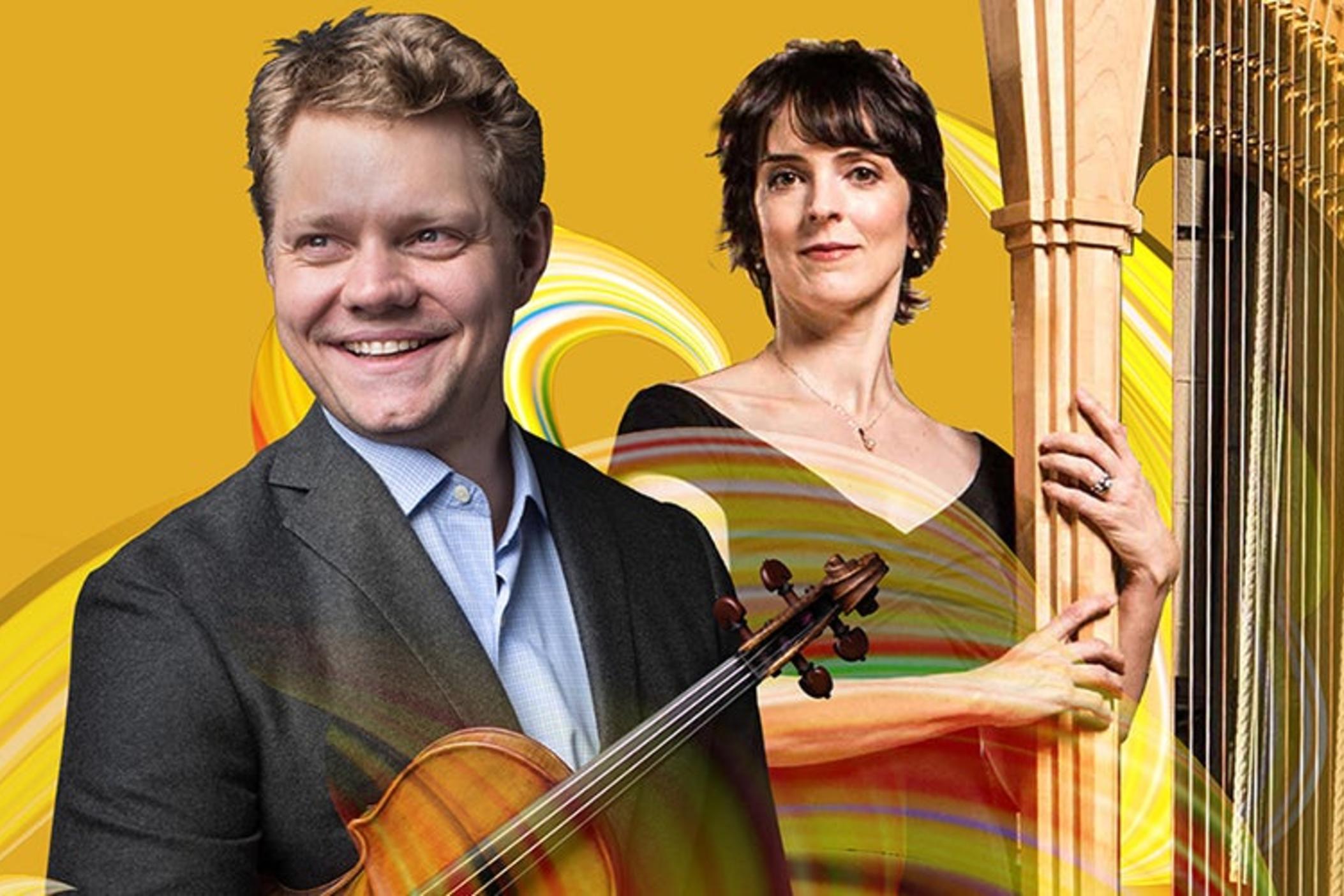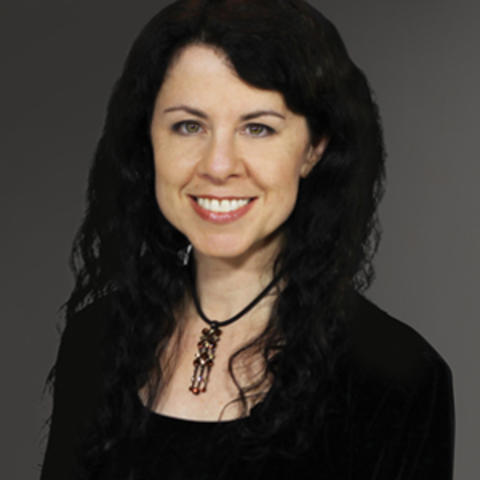Section Branding
Header Content
ASO violinist and harpist co-star in 'Scottish Fantasy' — and talk about playing through pandemic
Primary Content
Two prominent Atlanta Symphony musicians, concertmaster David Coucheron and principal harpist Elisabeth Remy Johnson, take to the front of the stage twice this week for the Scottish Fantasy by Max Bruch. Recently they joined GPB’s Sarah Zaslaw over Zoom to chat about how Bruch’s piece is and isn’t Scottish, and about the arc of the pandemic for them as performers.
Interview highlights
(This interview has been edited for length.)
On the pandemic era for the orchestra
David Coucheron: I think "tumultuous" is a good word to describe it. Full speed ahead, oh, now you’re going to slam on the brakes, now you’ve got to press the gas pedal. What I'm proud of is that we really tried our best to keep playing in any way, shape or form, whether it's in person, whether it's recorded, whether we’re sitting all six feet apart with our own stand. Hopefully things will be more normal from here on out. But you know the saying: If you want to make the gods laugh, tell them your plans.
On getting teary at the return of live audiences
David Coucheron: [Opening night 2021] was just incredibly emotional. With this difficult situation we've had the last few years, I think if anything it has reminded us of the importance of having a live audience. It's kind of what we live for and what we practiced for since we were kids, everybody in the orchestra. So it was something that I really had missed, and hearing the applause when you walk on stage, it changes your perspective of why you’re doing what we're doing.
Elisabeth Remy Johnson: It’s been sometimes the unexpected moments that have taken me by surprise. My very first time back having a live audience was with an Atlanta Chamber Players concert, and I heard somebody rustle their program, and just hearing the sound of paper and knowing that we weren't alone in there making music — that actually got me choked up.
On picking the ASO’s new music director
David Coucheron: That was a long process and a lot of curveballs were thrown because when you select a new conductor, you can see them with other orchestras, you can read, you can watch, but you don't really know the chemistry unless you see them play with us. So we had a lot of conductors lined up, which all had to be rescheduled. Nathalie [Stutzmann] was rescheduled several times. And I'm really proud of how we ended up selecting her despite all the troubles that we had. I think that we did well.
Elisabeth Remy Johnson: I think that Nathalie is going to bring a level of artistic expression that's going to be really, really exciting for everyone. And also, I've heard [outgoing music director] Robert Spano say wonderful things about Nathalie, I've heard Nathalie say wonderful things about Robert, and to know that there's that level of camaraderie and respect and admiration going in both directions gives me great optimism for the health of the organization.
On the harp’s role in Max Bruch’s Scottish Fantasy
Elisabeth Remy Johnson: Every time I've performed it, the harp has been [near the front of the stage near the solo violinist,] sort of wedged in there between the first stand of the cello and the viola sections. It’s just to give the conductor and the violin soloist and the harpist an opportunity to react in real time. The violinist is definitely the soloist. I have heard some harpists call it a double concerto. I'm probably not in that camp. The harp basically adds a flavor and a color. I know he was trying to evoke Scottish folk music. It’s not a Celtic vibe to the harp part at all. It's a standard orchestral part.
On Bruch’s use of Scottish folk tunes
David Coucheron: Bruch was never in Scotland before he wrote this piece. He just found a lot of tunes in the local library and decided to create a Scottish Fantasy. I also love the titles are not just "movement I, II, III," but they all have references back to the actual song that he was using. So that was really exciting for me to realize, and I wrote them all into my part. I hope [principal guest conductor Sir] Donald [Runnicles] will pronounce them correctly in Scottish.
Performances run Thursday, April 21, and Saturday, April 23 at Atlanta's Symphony Hall. Also on the program: Beethoven's "Eroica" Symphony, with Runnicles conducting. Details and ticket information can be found here.


